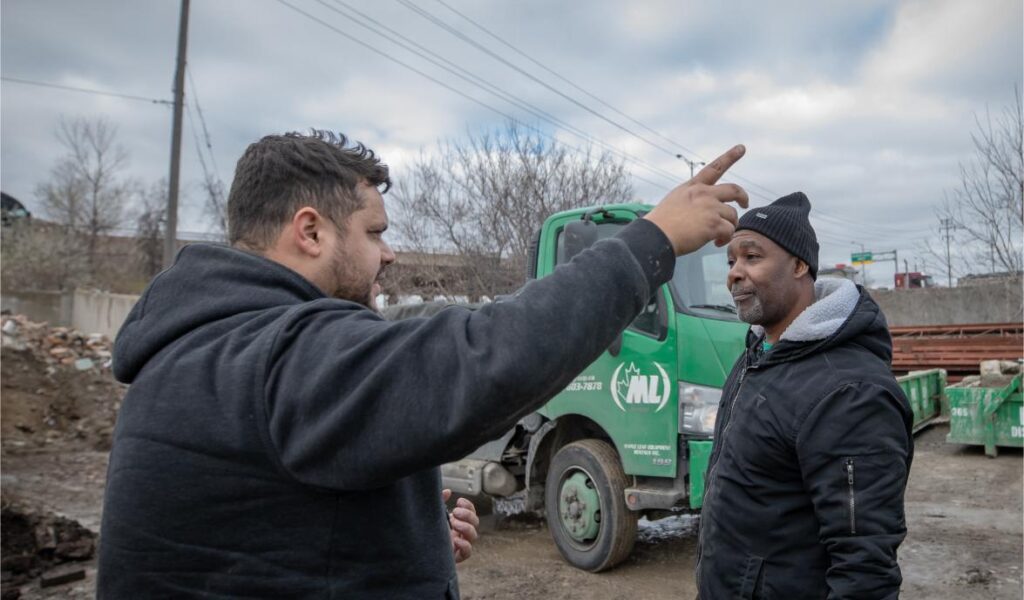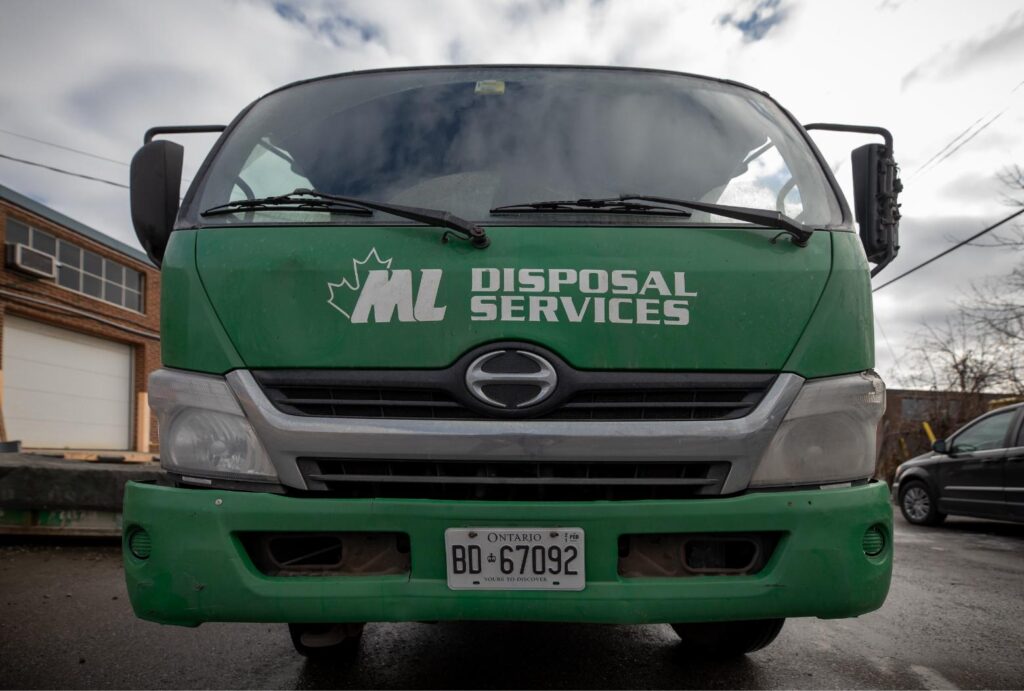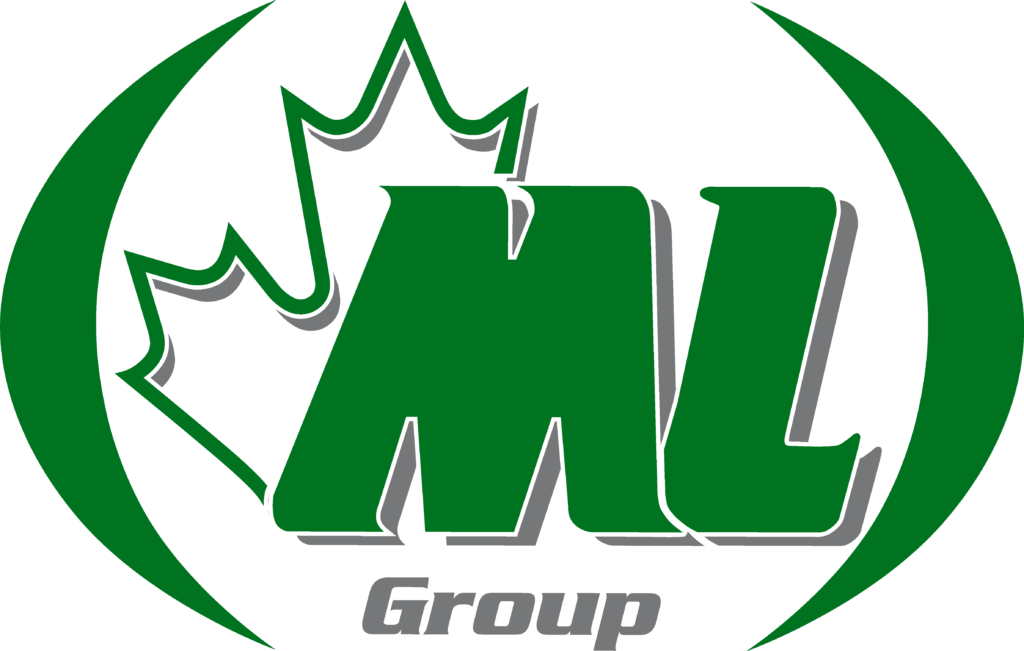
At ML Group, our commitment to sustainable construction practices guides us in implementing effective waste reduction strategies. With a legacy in the construction industry, we understand the critical importance of minimizing waste for both environmental stewardship and financial savings. This guide details practical strategies tailored for contractors, builders, and homeowners undertaking construction projects.
Understanding Construction Waste
Construction waste includes materials such as concrete, wood, metals, and packaging, stemming from demolition, construction, and material ordering stages. Contractors must grasp these types to implement reduction strategies for substantial cost savings and environmental benefits. In Toronto alone, construction waste significantly burdens landfills, underscoring the need for effective waste management practices.
Planning for Waste Reduction
Effective waste management begins with meticulous planning. Contractors and builders should develop a comprehensive waste management plan by:
- Conducting a waste audit to identify potential waste streams.
- Setting specific, achievable waste reduction goals.
- Identifying materials that can be recycled or reused.
- Collaborating with suppliers to source sustainable materials and minimize packaging waste.
At ML Group, we support our clients in integrating these proactive measures into their project planning. Our products are designed to facilitate waste minimization and sustainability practices from the outset, benefiting both large-scale construction projects and smaller residential renovations.
Efficient Material Use
Optimizing material usage is crucial for reducing waste. Strategies include:
- Accurate project estimation to avoid over-ordering.
- Adopting modular construction techniques to reduce offcuts.
- Implementing just-in-time delivery to minimize onsite material storage.
- Using advanced software for precise material planning and management.
These strategies align closely with ML Group’s commitment as suppliers to support efficient construction practices. By providing essential materials and solutions, we enable contractors and builders to achieve significant waste reduction, leading to cost savings and enhanced sustainability. This approach benefits both large-scale construction projects and smaller residential renovations.
Recycling and Reusing Materials
Recycling and reusing construction materials can significantly reduce waste. Common materials include:
- Concrete: Recycled into new concrete or aggregate for road construction.
- Wood: Repurposed for new construction or converted into mulch.
- Metals: Recycled into new metal products.
At ML Group, we collaborate with local recycling facilities and organizations to ensure materials are diverted from landfills and reused in new constructions. These practices contribute to sustainability efforts and offer practical benefits for contractors and homeowners alike.
Waste Segregation and Management Onsite
Proper onsite waste segregation is essential for effective waste management. This involves:
- Setting up designated waste bins for different materials.
- Training staff on waste segregation procedures.
- Monitoring and tracking waste management performance using advanced tools and technologies.
ML Group’s onsite waste management protocols maximize recycling and minimize landfill contributions, ensuring efficient waste handling throughout the project lifecycle. Contractors and builders can adopt these practices to streamline their waste management processes.
Innovative Waste Reduction Techniques
Exploring innovative techniques can further reduce waste. These include:
- Prefabrication and Offsite Construction: Allow for precise material usage, reducing waste generated during construction.
- 3D Printing: Produces construction components with minimal waste.
- Biodegradable Materials: Offer sustainable alternatives that minimize environmental impact.
ML Group supports these innovative methods, recognizing their potential to enhance sustainability in construction. These techniques can be particularly beneficial for large-scale projects but are also adaptable for residential constructions.
Cost Savings and Financial Benefits
Implementing waste reduction strategies leads to substantial cost savings. Benefits include:
- Lower disposal costs by reducing landfill contributions.
- Reduced material expenses through efficient usage and recycling.
- Potential tax incentives and rebates for sustainable practices. These savings enhance project profitability and sustainability, making waste reduction a financially viable strategy for construction companies.
ML Group has witnessed firsthand the cost benefits of effective waste management practices, providing a model for other contractors and builders.
Engaging Stakeholders in Waste Reduction
Engaging all stakeholders in waste reduction efforts is crucial for success. This involves:
- Educating and training employees, subcontractors, and clients on waste management practices.
- Promoting a culture of sustainability within the organization.
- Encouraging collaborative efforts to achieve waste reduction goals.
ML Group is committed to actively involving stakeholders in waste reduction strategies, ensuring their successful implementation and benefiting all parties involved. Contractors and builders can adopt similar practices to foster a culture of sustainability within their teams.

Conclusion
Reducing waste is both an environmental responsibility and a financial imperative. At ML Group, we’re committed to sustainable construction practices that enhance project efficiency and profitability. Discover how we can optimize your construction projects with sustainable solutions. Explore our comprehensive services in waste management, concrete solutions, lumber, and building supplies to learn about effective waste reduction strategies and sustainability practices that benefit your projects.
For expert guidance on sustainable construction practices, contact ML Group at (416) 603-7878. Visit our website to delve deeper into our services and resources on construction waste management and sustainability, and subscribe to our newsletter for updates.













